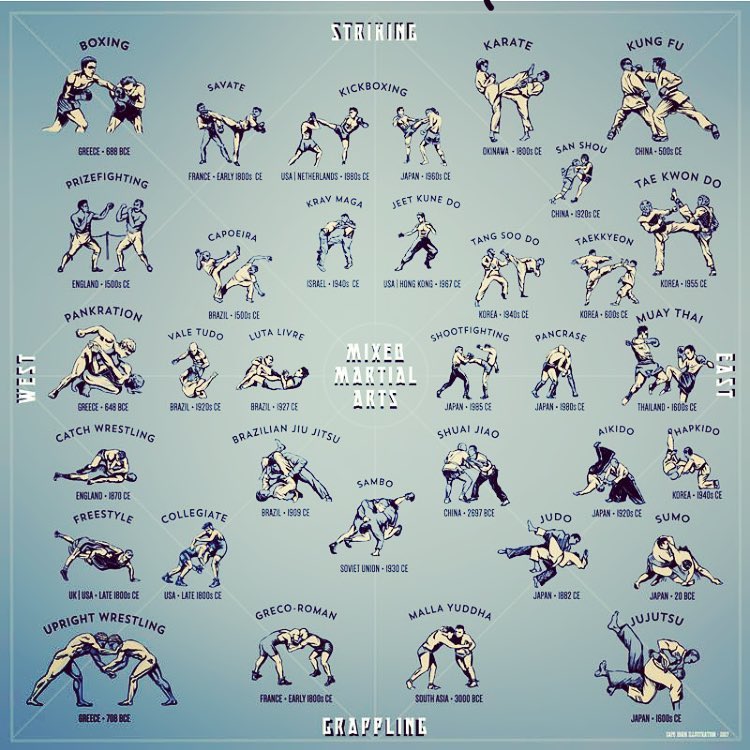The Advancement And Historical Importance Of Martial Arts Across Various Societies
The Advancement And Historical Importance Of Martial Arts Across Various Societies
Blog Article
visit this web page link -Wilcox Graham
Martial arts have a remarkable history that covers centuries and continents. You may discover it interesting how ancient practices like Shuai Jiao and Kalaripayattu laid the groundwork for modern fight methods. These self-controls not only emphasize physical abilities but additionally mirror the cultures that birthed them. As you discover their advancement, consider just how globalization has changed these typical kinds into hybrid styles. What influences do you assume have formed today's martial arts landscape?
Ancient Martial arts: The Structures of Combat
As you delve into the globe of ancient martial arts, you'll uncover the rich structures that shaped fight methods throughout societies. Very early techniques focused on Self-Defense and survival, commonly including strikes, grappling, and weaponry.
In ancient China, for example, methods like Shuai Jiao highlighted throws and joint locks, while India's Kalaripayattu showcased dexterity and fluid activity. Japanese samurai created Kenjutsu, a polished swordsmanship that highlighted technique and strategy.
additional reading offered not just for fight however also as a way of individual growth, instilling worths like respect and willpower. The blending of these techniques over time laid the groundwork for the diverse martial arts you see today, each reflecting the distinct approaches and requirements of its culture.
The Social Influence on Martial Arts Development
While martial arts frequently mirror the sensible needs of a culture, they additionally embody the social worths and beliefs of their beginnings. When you explore different martial arts, you'll notice how they're affected by religion, ideology, and social standards.
For example, the emphasis on respect and discipline in Japanese martial arts stems from Zen Buddhism and samurai society. In contrast, Brazilian Jiu-Jitsu advertises flexibility and strategy, shaped by the demand for efficiency in a varied, multicultural atmosphere.
You might discover that the routines, uniforms, and training methods show a community's history and identification. By comprehending these social impacts, you deepen your recognition of martial arts and their role fit human experiences across the globe.
Modern Adaptations and the Globalization of Martial arts
Martial arts have actually transformed significantly in current decades, adjusting to contemporary society and global impacts. You'll discover that conventional types have mixed with contemporary methods, developing hybrid styles like mixed martial arts. These adaptations cater to diverse target markets, making martial arts easily accessible and appealing globally.
With the increase of social networks and electronic platforms, you can discover tutorials and competitions from all edges of the world, damaging geographical barriers. This globalization has actually resulted in a shared appreciation for numerous disciplines, from Brazilian Jiu-Jitsu to Taekwondo.
As you involve with these arts, you'll understand they're not almost combat; they advertise physical fitness, technique, and mental wellness.
Eventually, contemporary adjustments have actually improved the martial arts landscape, making it a vibrant and progressing technique.
Final thought
In discovering the background and advancement of martial arts, you discover an interesting blend of strategies, societies, and philosophies. From old disciplines like Shuai Jiao and Kalaripayattu to the modern-day adaptability seen in MMA, martial arts reflect humankind's quest for Self-Defense and personal development. As you engage with these methods, you not just obtain skills but likewise a much deeper gratitude for the diverse practices that form our globe today. So, proceed your trip and accept the art of battle!
